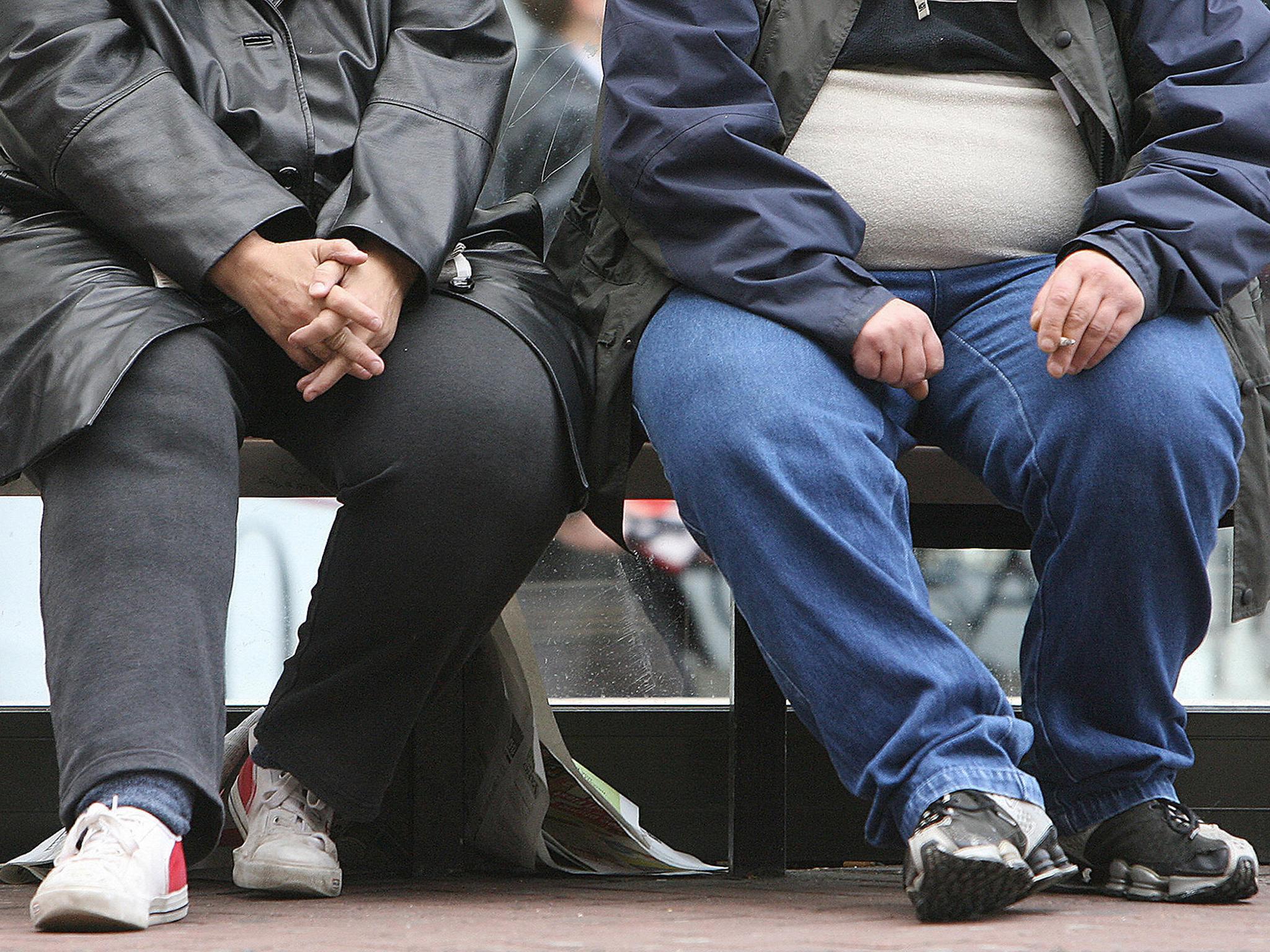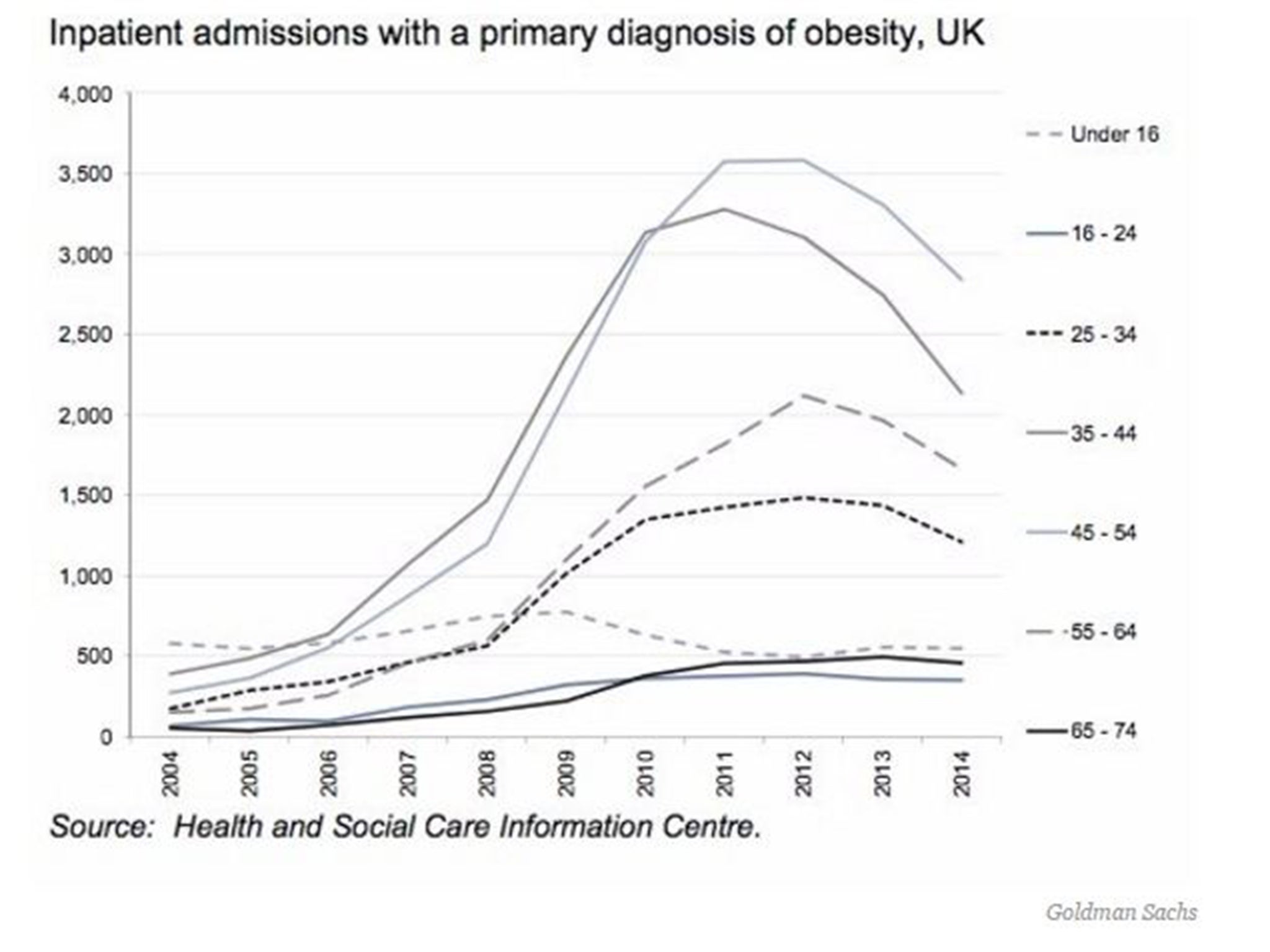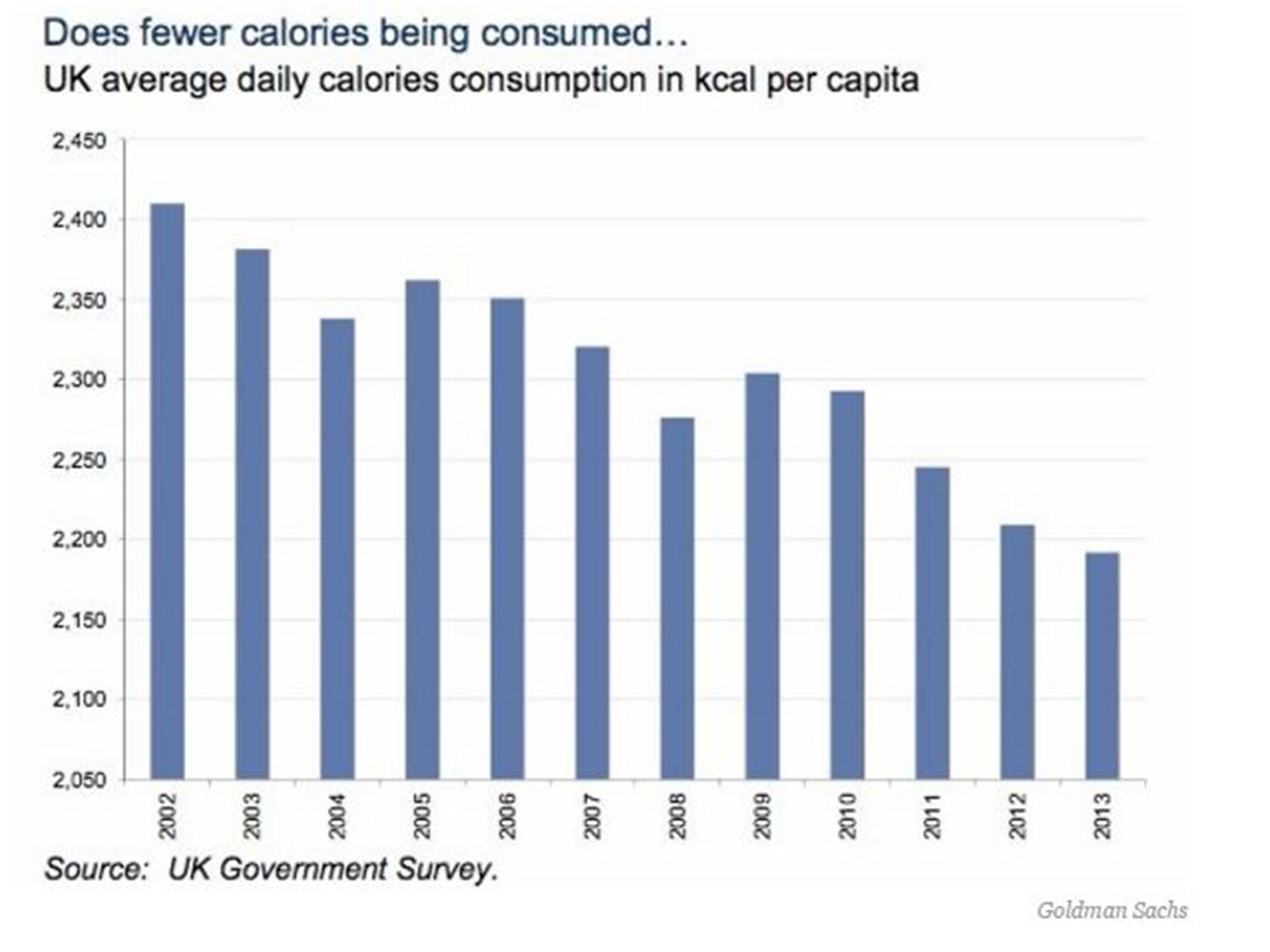One chart that shows why Britain has already hit 'peak obesity'
The WHO said earlier this year that many countries would see more than half of adults above the healthy weight limit

Your support helps us to tell the story
From reproductive rights to climate change to Big Tech, The Independent is on the ground when the story is developing. Whether it's investigating the financials of Elon Musk's pro-Trump PAC or producing our latest documentary, 'The A Word', which shines a light on the American women fighting for reproductive rights, we know how important it is to parse out the facts from the messaging.
At such a critical moment in US history, we need reporters on the ground. Your donation allows us to keep sending journalists to speak to both sides of the story.
The Independent is trusted by Americans across the entire political spectrum. And unlike many other quality news outlets, we choose not to lock Americans out of our reporting and analysis with paywalls. We believe quality journalism should be available to everyone, paid for by those who can afford it.
Your support makes all the difference.Europe is repeatedly being told that the continent is facing an obesity crisis of epic proportions.
The World Health Organization said earlier this year that many countries would see more than half of adults above the healthy weight limit.
However, according to Goldman Sachs analysis in its 100th edition of its Fortnightly Thoughts report, Britain has actually already reached peak obesity.
Basically, as this chart shows, those going to hospital in Britain that are related to obesity are dropping off:

And Goldman Sachs pointed out the reason for this could be closely correlated to the fact Britain is consuming less calories than it used to:

The World Health Organization said that by 2030, a third of women will become obese, compared to 26% in 2010. By the same year, 75% of UK men will be classified obese while 36% of men are forecasted to be obese.
However, if Britain continued to drop its average calorie consumption, this could help dramatically.
Calories intake and expenditure is the key to either gaining, losing or maintaining weight. Men, on average, are recommended to take 2,500 per day while women are recommended to take in no more than 2,000 to maintain a healthy weight.
Of course if you ingest more calories than you expend, you will put on weight. And if you expend more than you take in, you will lose weight.
So Goldman Sachs' observation that the drop in calorie consumption is closely correlated to the decrease in patient admissions related to obesity is an astute one.
Read more:
• 13 pictures of the devastating Boxing Day floods
• Another top Chinese executive is 'missing'
• 13 bad habits you should break in 2016
Read the original article on Business Insider UK. © 2015. Follow Business Insider UK on Twitter.
Join our commenting forum
Join thought-provoking conversations, follow other Independent readers and see their replies
Comments